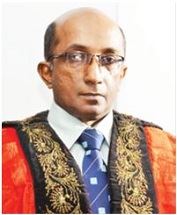
By Eng. Prof. T. M. Pallewatta,
Int. PEng., CEng., FIE(SL), FIAE(SL)
President, IESL, 2018/2019
Senior Professor in Civil Engineering, Department of Civil Engineering, OUSL
My Dear Fellow Engineers
My previous correspondence was a glimpse at the engineering education history of Sri Lanka from the establishment of a Technical School at Colombo in 1893 to the establishment of the latest engineering faculties. Within these 126 years, engineering education in Sri Lanka has taken a roller-coaster ride shaping the fundamentals of the education system in the country as well as the standards of the profession. Even though we have a century-old engineering education history, evidence of a well structured National Engineering Education Policy is conspicuously lacking. I strongly believe that it is belated obligation on our part to form such a policy.
First of all, it is important to understand the reason why we need a comprehensive engineering education policy. Perhaps one may think that for more than 100 years of engineering education prevailed in the country, why bother now? The answer is simple. Continuous indifference paid to this topic and political influences has made the engineering education in the country a ship without a helm. Therefore through the “Presidents Corner” I would like to highlight some of the major issues and problems engineering education and engineering profession is facing today.
The Engineering Council Act passed by the parliament in 2017, recognizes six categories of engineering professionals. They are Chartered Engineers, Associate Engineers, Affiliate Engineers, Incorporated Engineers, Engineering Diplomates and Engineering Technicians. Regulations regarding registration regarding each category have yet to be finalized by the Engineering Council of Sri Lanka. The prevailing education system catering to the industry has created three levels of qualifications for engineering practitioners. These are the Certificate level, Diploma level, and Special Degree level offered by different governmental bodies and state universities. With the more recent creation by the government of the ‘Technology Stream’ at GCE A/L and subsequent ‘Technology Faculties’ in universities offering ‘Engineering Technology’ degrees equivalent to three year degrees, along with already established University of Vocational Technology B.Tech degrees, the category of Engineering Technologists generally recognized in the global arena has been created. However, it should be noted that the local job market is yet to be restructured to accommodate these engineering practitioners.
In the international arena three well defined categories of engineering practitioners have been established. Under the International Engineering Alliance (IEA) where IESL is a member, Accords have been established to regulate the educational standards for these three categories. The well known Washington Accord is for 4 year equivalent Engineering Degree programmes creating ‘Engineers’ to later become Chartered or Professional Engineers through professional development. The Sydney Accord has been established for 3 year equivalent Engineering/Technology degree programmes creating ‘Engineering Technologists’ while the Dublin Accord is for ‘Engineering Technicians’ with Diplomas of technology in relevant areas. The IESL is the official signatory representing the jurisdiction of Sri Lanka for both Washington Accord and Sydney Accord. Consequently, IESL has formulated and published standards and procedures for Recognition and Accreditation of academic qualifications for ‘Engineers’ and ‘Engineering Technologists’ fitting respectively in to membership categories of ‘Associate Member’ and ‘Affiliate Member’ who are respectively eligible to register under ‘Associate Engineer’ and ‘Affiliate Engineer’ at the Engineering Council of Sri Lanka. However, clear mapping of the local job and position structure to the created qualifications has not been possible due to historical, social and political reasons. Should our categorizations also follow international standards? Or should it be unique to meet the requirements of the country? Is the question facing us.
More than ever before, due to social high demand, higher education has become a lucrative profit making venture, internationally as well as locally. Once the sole authority on higher education, the state university sector is now being marginalized by its own deficiencies, conflicting interests of its key players and short-sighted political and profit motives. The result is what is to be expected, high demand areas like engineering are the first victims to be exploited for profit oriented educational endeavours. Hence, it is imperative that quality assurance and quality control combined with ethical propensity govern the delivery of higher education especially in engineering, where capability, responsibility, and accountability of the practitioner is of utmost importance in the interest of the public.
From the early ages, children are being pushed to become an engineer or a doctor, which is a social factor in our country. However, one should be cognizant of the demand for engineers in the country, demand for the other engineering practitioners and the ratios between different categories. Is the education system of the country producing appropriate numbers at appropriate ratios between them under categories of engineering practitioners? The usual prediction of the requirements of Engineers or Engineering Technologists based on qualified numbers in the appropriate streams at GCE A/L examination may not be the best way of proportioning the engineering workforce of the country.
Most importantly, the ethical, social and economic issue of recipients of public funded higher education in very high demand areas such as Engineering, shying away from serving the country for perceived greener pastures in other lands has to be addressed. At least, by national level GCE A/L standards, the cream of the young analytical minds of the country gets Engineering education through fierce competition at a huge outlay of public funding. If the country is unable to gainfully employ them for national development or if they are not willing to serve the country with various excuses to migrate, the whole operation is an economic as well as ethical disaster, promoting brain drain and squandering of public money. Hence, all recipients of higher education from state institutions should be made accountable for paying back with interest at least the capital outlay made on their higher education by the public funds.
Discussed above are few of the facts and glaring issues faced by the higher education in general and Engineering higher education in specific, which I wanted to place before you through the President’s Corner. When I chaired the Education Standing Committee of as a Vice President few years ago, the Committee initiated similar discussions about having an IESL policy on Engineering Education. I wish to summarize a few points that we discussed back then, which are still applicable.
“Basis of the IESL is the identification and the recognition of the ‘Chartered Engineer’. A professional well-founded in the theories of Science and Engineering, augmented by training and experience and made accountable through ethics and responsibility.
Foundation for the creation of a Chartered Engineer is prepared through school education and laid at the undergraduate level in the University, where the prospective candidate acquires the theoretical grasp of the science of Engineering. Hence, providing guidance for ensuring academically sound, practically viable, superior quality undergraduate Engineering education for aspirant Engineers of Sri Lanka is the single most important task faced by the IESL.
- IESL recognizes free education policy of Sri Lanka, which emancipates persons with aptitude, from economic constraints, for gaining an education.
- IESL recognizes a four-year degree in Engineering, obtained from a reputed and recognized University, gained after successful completion of secondary school education in Mathematics and Science (GCE (A/L)), to be the basis of academic qualifications to become a Chartered Engineer.
- IESL recognizes that continuous appraisal of recognized academic programmes in Engineering is essential for maintaining quality and timeliness of knowledge.
- IESL recognizes that apart from the established disciplines of engineering emerging disciplines have to be recognized after appropriate appraisals.
- IESL recognizes that Engineers who have fulfilled the academic requirements to be a Chartered Engineer should be gainfully employed in Sri Lanka for the benefit of the country. As such IESL is not in favour of producing Engineers without proper appraisals of the demand of the country.”
By considering the importance of formulating a National Engineering Education Policy, IESL has already assigned a Council Committee for the task. The committee has already had a full day session to discuss on the related matters. I personally believe that it is our duty and responsibility as the premier professional engineering body to take this matter forward and that all of you would agree on this endeavour by the Institution.
Eng. Prof. T. M. Pallewatta
Int. PEng., CEng., FIE(SL), FIAE(SL)
President of the IESL, 2018/2019
Senior Professor in Civil Engineering,
Department of Civil Engineering,
OUSL





